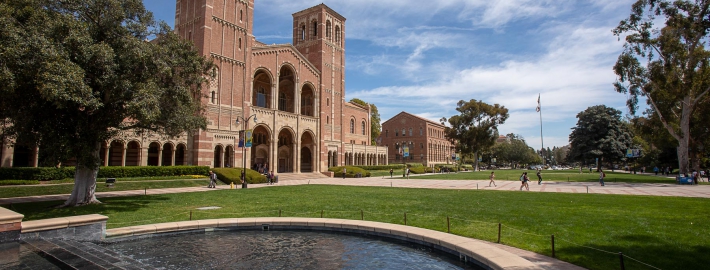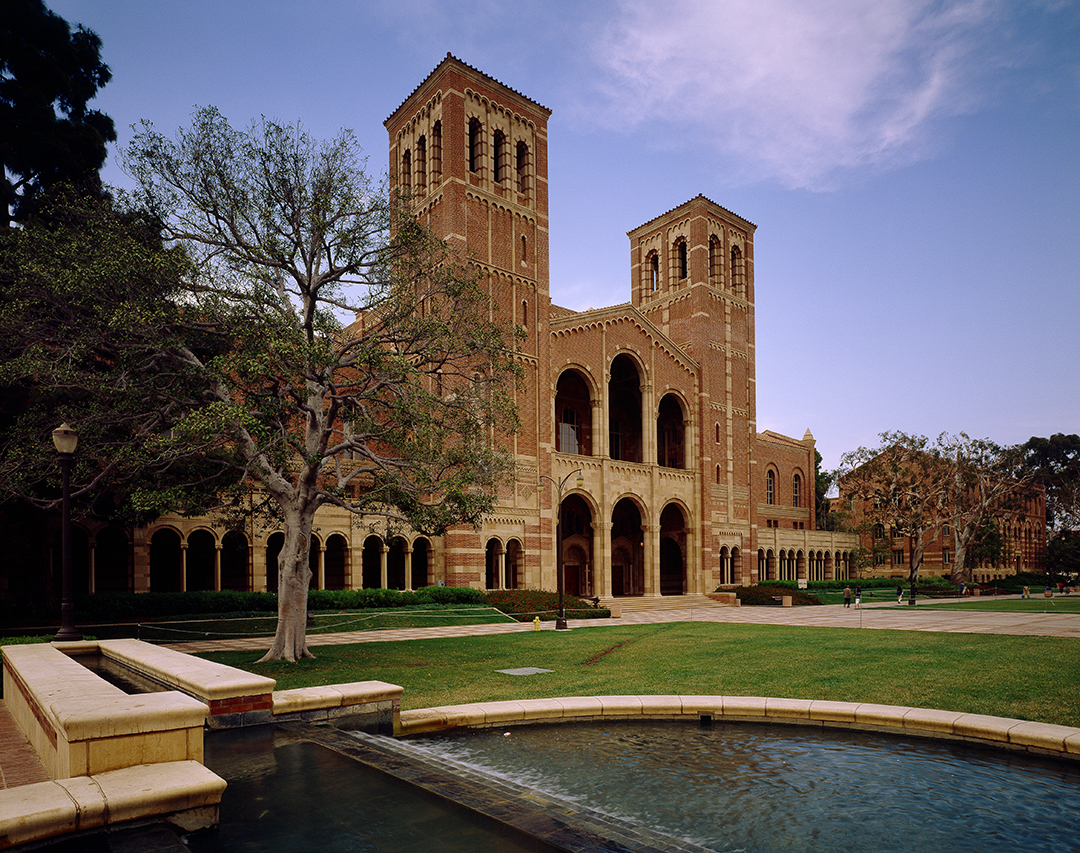Lessons Learned: UCLA Symposium on Remote Teaching during COVID-19
Students haven’t been the only ones navigating a new college experience during the COVID-19 pandemic. For faculty, switching to fully remote teaching posed a challenge unlike anything they’d experienced before.
UCLA’s Center for the Advancement of Teaching, along with its partners CEILS, EPIC, and OTL,* hosted its third annual symposium for UC faculty and staff in April. “Teaching at UCLA – Looking Forward with 2020 Vision” featured panel discussions, talks and workshops centered on lessons learned during remote teaching since March 2020.
A central theme was how to keep students engaged in a virtual classroom. At the faculty roundtable, professors discussed the effects of holding classes and office hours virtually from home, with some noting that the newfound flexibility of remote teaching had enabled them to make stronger connections with students.
A view of Royce Hall from the southwest, across the Shapiro Fountain.
“[Remote teaching] brought us together in ways I have never experienced in 24 years at UCLA. I felt a level of humanity with my students that I had not experienced before,” said Abel Valenzuela Jr., professor of Chicana/o and Central American studies and of urban planning and director of the Institute for Research on Labor and Employment.
Valenzuela said that hosting virtual informal hangouts with his students to talk about anything on their minds was particularly impactful.
English professor Danny Snelson shared different gaming tools he used to make lectures fun and engaging for his students, including Discord, Animaze, Gather Town and Snap Camera.
Other faculty discussed the various ways they adapted their assignments and class organization to be mindful of the challenges of remote learning and the pandemic. Being flexible with deadlines, offering smaller, low-stakes assignments, and giving students space in discussions or journals to express their thoughts and concerns were all successful in keeping students engaged and supported.
Student panelists noted that although it was challenging to connect with their classmates in a virtual setting, working in small groups and spending more time discussing topics as a class helped them feel part of a community.
Imani Easton, graduate student in civil and environmental engineering, said that remote learning has equipped students with valuable communication skills that will prepare them for life after graduation.
“We’ve gotten to a point where we have to speak up and contribute. Before we used to just sit in lecture and take notes,” Easton said. “When we go back to campus, I’m looking forward to having more of a dialogue and open communication.”
David Schaberg, senior dean of UCLA College, dean of humanities and professor of Asian languages and cultures, said that despite the successes of remote learning, he wants to get as many people back on campus as possible.
“Nothing can truly replicate the excitement and personal growth students experience on a college campus,” Schaberg said. “We cannot give up the ideal of the campus space where people interact with their full selves. This is where students come to test out their adult selves, and you can’t do that online.”
Watch recordings of all sessions from the symposium here.
*Center for Education Innovation & Learning in the Sciences (CEILS), Excellence in Pedagogy and Innovative Classrooms (EPIC), Online Teaching & Learning (OTL)
This article was written by Robin Migdol.





